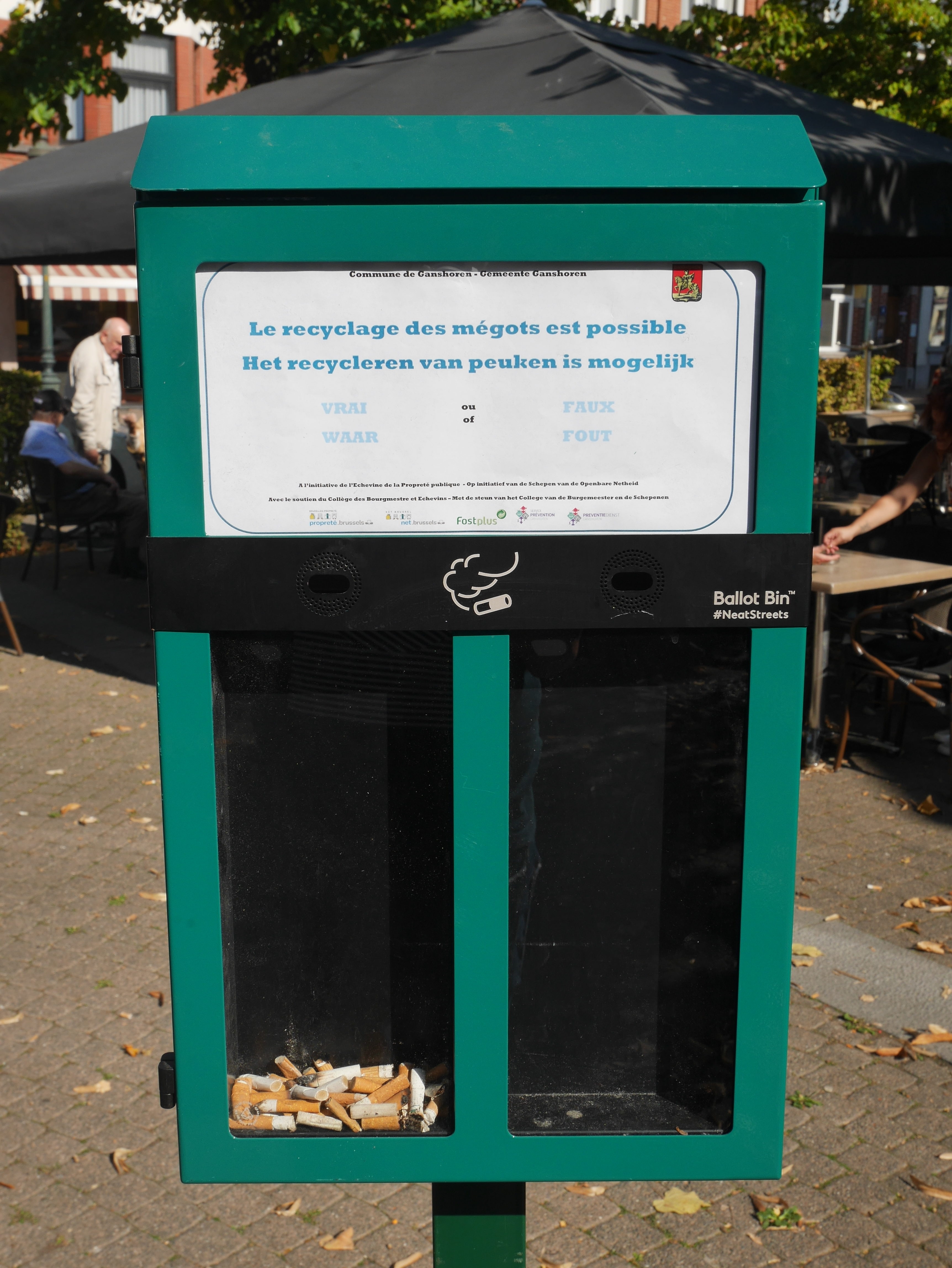Thessaloniki gets ready for its metro launch in November
The underground rapid transit lines have been under construction for almost two decades due to various project delays
 TheMayor.EU logo
TheMayor.EU logo Cigarette butts take 15 years to decompose and can contaminate up to 500 litres of water with their heavy chemicals
Recently, local authorities in Brussels announced they have collected 900,000 cigarette butts in the city last year. For the past two years, the project of collecting and recycling the butts has been a major focus of the Alderman of Public Cleanliness Zoubida Jellab, who made the announcement.
The strategy has two main pillars: installing special street ashtrays to help separate the butts and tightening control over cigarette littering by increase the number of issued fines.
Cigarette butts are made from over 4,000 different chemicals and they take roughly 15 years to decompose. At the same time, they make up 30% of the street litter in Brussels and people throw out an estimated 30 million butts in Belgium every day.
At the same time, according to the city, because of the high percentage of cigarette littering takes up in the city, street cleaners are burdened with extra work, circling back to the consumer, who ends up funding the cleaning service through taxpayer money.
Furthermore, the usual fate very cigarette butt is to get washed away by rain, then float down a river and into the ocean. There, experts estimate that each butt contaminates 500 litres of water.
 A cigarette butt recycling bin, Source: We Circular website
A cigarette butt recycling bin, Source: We Circular website
This is why Alderman Jellab decided to focus on cigarette butts. One of the pillars of her measures are the 296 additional ashtrays installed in the city since 2019. 165 of them are part of redesigned traffic lights and another 131 have been attached to trash cans.
The second pillar of her campaign is to increase the number of fines for cigarette littering. In 2019 local law enforcement issued 199 fines, then in 2020, the number jumped to 477. In the first half of 2021, they have issued 198 fines.
It is not enough just to collect the butts or to punish the polluters, the city needs to have a plan on what happens next. Luckily, they have joined forces with We Circular, a start-up aiming to promote a circular economy in Belgium.
After the city collects the butts, We Circular sends them to France where a subcontractor cleans the material. Then they are used as raw material to produce office accessories like clocks, coasters and ashtrays.
You might also like: In France cigarette butts are turned into urban furniture

The underground rapid transit lines have been under construction for almost two decades due to various project delays

Now you can get your wine in Talence by paying directly in Bitcoin

That’s because the state has to spend money on updating the railway infrastructure rather than subsidizing the cost of the popular pass

Rethinking renewable energy sources for the urban landscape

The examples, compiled by Beyond Fossil Fuels, can inform and inspire communities and entrepreneurs that still feel trepidation at the prospect of energy transition

Now you can get your wine in Talence by paying directly in Bitcoin

The 10th European Conference on Sustainable Cities and Towns (ESCT) sets the stage for stronger cooperation between the EU, national and local level to fast track Europe's transition to climate neutrality.

At least, that’s the promise made by the mayor of Paris, Anne Hidalgo

The underground rapid transit lines have been under construction for almost two decades due to various project delays

At least, that’s the promise made by the mayor of Paris, Anne Hidalgo

Hostal de Pinós is located in the geographical centre of the autonomous region

Despite its church-y name, the district has long been known as the hangout spot for the artsy crowds

Urban dwellers across the EU are having a say in making their surroundings friendlier to people and the environment.

Forests in the EU can help green the European construction industry and bolster a continent-wide push for architectural improvements.

Apply by 10 November and do your part for the transformation of European public spaces

An interview with the Mayor of a Polish city that seeks to reinvent itself

An interview with the newly elected ICLEI President and Mayor of Malmö

A conversation with the Mayor of Lisbon about the spirit and dimensions of innovation present in the Portuguese capital














